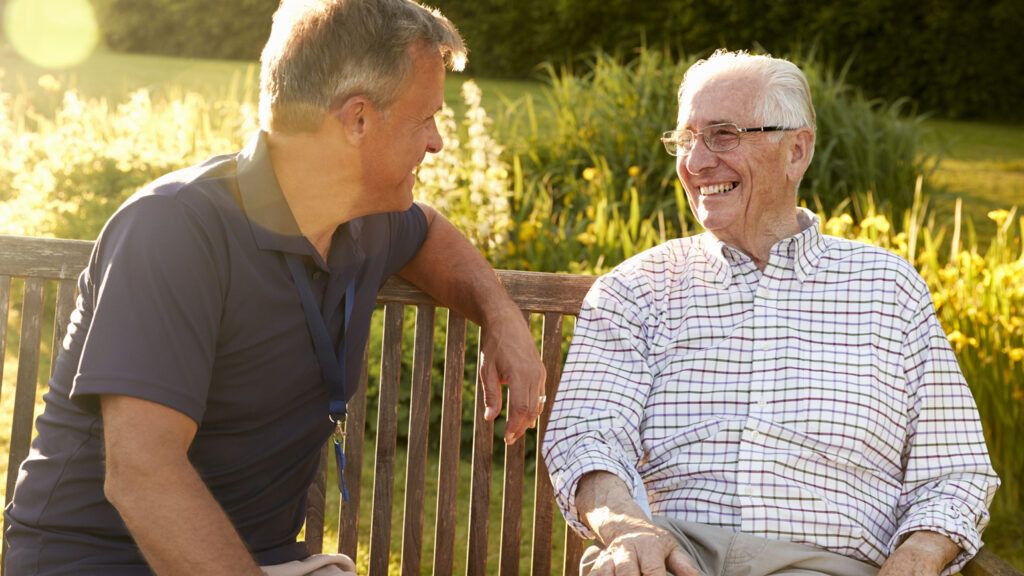Silvia Orsulic-Jeras, MA is the SHARE for Dementia Program Manager at Benjamin Rose Institute on Aging.
If you are caring for a loved one who has recently been diagnosed with dementia or a related disorder such as Alzheimer’s disease, it can feel devastating. Often, families avoid talking with their loved one about what the diagnosis could mean. It may feel too scary to talk about. But, if you don’t have these conversations, you may find yourself having to make important decisions about your loved one’s care or other health-related decisions without ever having asked what they would have preferred. This may leave you feeling guilty because you’re not sure if you have done what they would have wanted.
According to research from the Center for Research and Education at Benjamin Rose Institute on Aging, having conversations about future care as early as possible after a dementia diagnosis can be one of the most effective ways to reduce these feelings of guilt and stress. It also helps ensure that your loved one’s wishes are honored.
Ask yourself these 3 questions about the care your loved one may want in the future. The answers can help you plan and prepare to honor their wishes as much as possible.
1. What matters most to your loved one about their care?
To prepare for the future, have an open dialogue with your loved one about what it means to be diagnosed with dementia and about their future care needs.
SHARE for Dementia, an early-stage care-planning program designed by Benjamin Rose Institute on Aging out of decades worth of research, has identified 5 core values for care that most of us find important:
1. Independence
2. Safety
3. Not Being a Burden
4. Activities with Family and Friends
5. Having a Say in Who Helps Out
Does your loved one prefer to do things for themselves without help? Would they prefer to organize their own routines and spend their money how they want? If the answer is yes, that means maintaining independence is one of your loved one’s most important values when it comes to care (Orsulic-Jeras, S., Whitlatch, C. J., Szabo, S. M., Shelton, E. G., & Johnson, J. (2016). “The SHARE program for dementia: Implementation of an early-stage dyadic care-planning intervention” Dementia. Advance online publication).
If you’re not sure what is most important to your loved one, don’t be afraid to ask. Have these discussions as early as possible to make sure you know what they want and that you are making the decisions together rather than on your own.
2. Who does your loved one want to help them?
As dementia progresses, your loved one may need help with tasks they used to be able to handle on their own, like cooking, grocery shopping and managing medications. Eventually, they may need help with more personal activities like taking a shower, getting dressed or using the toilet. It may be difficult for your loved one to accept help with things they used to do independently. However, giving them some control over who helps can make the change a little less distressing. Ask your loved one who they would prefer to help them with certain tasks. Their answers may help you discover someone your loved one feels comfortable with. You may also find people who can take on some responsibilities, so that you are not alone in bearing the burden of care.
3. How much can you handle without help?
If you are the primary caregiver, you may feel as if you are managing every task by yourself. Research shows this overwhelming burden can have negative impacts on caregivers including depression, anxiety and illness. If you’re feeling overwhelmed, ask other family members and friends what they can do to help. There are also organizations within your community that can provide services to you or your family.
Knowing what your loved one wants is one way to support good communication in your relationship and get the information that you will need in the future when making decisions on your loved one’s behalf. For more information on resources to help you plan for dementia care, consider contacting a local community organization, like your local Alzheimer’s Association Chapter or Area Agency on Aging.






